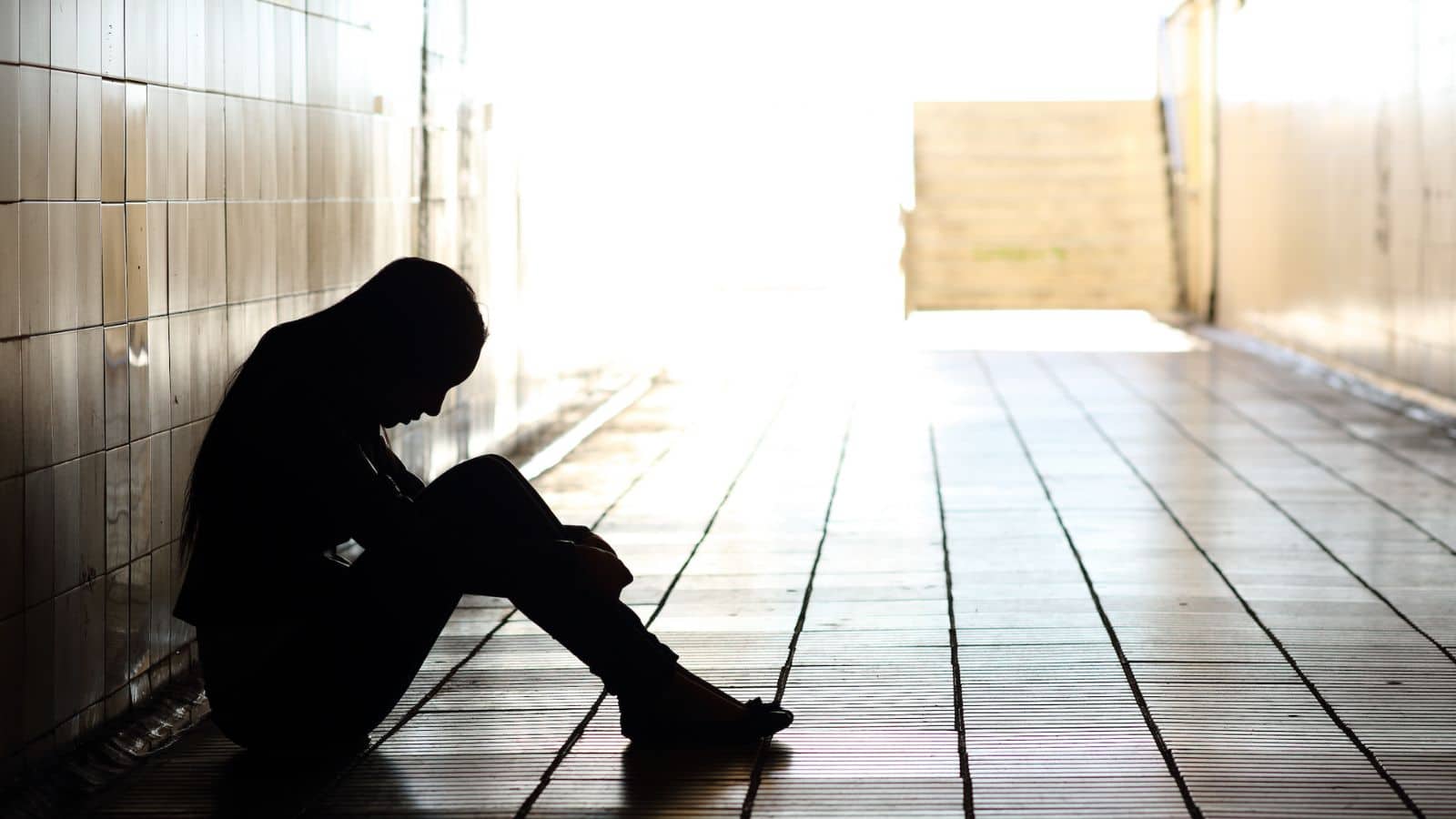‘Dysfunctional’ is a broad term used to describe parents who are emotionally unavailable, neglectful, and disrespectful. While some dysfunctional parents are overtly abusive, others are subtle, so it can be harder to spot. We’ve compiled 18 signs that you were raised by dysfunctional parents whose behavior has impacted your adult life.
Self-Criticism

People who were raised by dysfunctional parents are often very self-critical because they spent their entire childhoods believing that they weren’t good enough. According to YoungMinds, feeling loved and supported by your parents is essential to building good self-esteem. As a result, people who had dysfunctional childhoods are much harder on themselves.
Fear of Abandonment

It’s a parent’s job to make their child feel safe and supported, so if you grew up feeling like you were all alone despite being surrounded, it’s a sign that your parents were dysfunctional. This loneliness evolves into a fear of abandonment in adulthood, causing traumatized individuals to latch onto those they love and constantly worry about losing them.
People Pleasing

Children need and enjoy praise, especially from their parents. However, it’s common for dysfunctional parents to withhold affection and make their children work for it, which negatively impacts them for life. This desperate need to please doesn’t go away in adulthood, so if you’re constantly trying to please everybody, it’s another sign of parental dysfunction.
Self-Isolation

When you’ve been raised by dysfunctional parents, it’s natural to want to protect yourself. Unfortunately, many people do this by isolating themselves, feeling that if they don’t let anyone close, they won’t get hurt. This is a very lonely way to live, and it’s dictated by an internal voice telling you that you’re better off without anyone else.
A Need to Control Things

Dysfunctional parents are often unpredictable, so their children lack stability in the home. Then, when they grow up, they overcompensate by trying too hard to control things in order to create a sense of stability for themselves. If you react badly to change and prefer to plan out everything, it could be an emotional reaction to a dysfunctional childhood.
Attachment Issues

Much like the need to please people, individuals who were brought up by dysfunctional parents also display attachment issues. Talkspace warns that attachment issues due to familial insecurities can sometimes lead to mental health problems later in life, so we need to talk about them. If you irrationally fear losing those closest to you, you likely had emotionally unavailable parents.
Poor Communication

Poor communication indicates a tough upbringing because communication is a simple skill most people learn easily in childhood. If your parents avoided important conversations, gave you the silent treatment, told you to stop talking, or constantly argued, their dysfunctional communication likely still prevents you from being able to comfortably communicate with others.
Erratic Emotions

Children’s developing minds are consistently overwhelmed by big emotions, but how they deal with them depends on their upbringing. Parents who acted erratically and let their emotions run wild set a bad example for their children. As a result, you might struggle to keep your emotions in check as an adult and feel overwhelmed by your own reactions.
Increased Anxiety

It can be hard to trust and rely on people when your entire childhood was characterized by inconsistency. A lot of anxious adults had dysfunctional parents who created hostile home environments and made their children fear their reactions. As a result, these adults are scared of being treated similarly by their peers.
Perfectionism

Every child wants to impress their parents, but dysfunctional parents often starve their children of positive affection and communication, making them feel like nothing they do is ever good enough. According to Psychology Today, parents who put down their children turn them into perfectionists with a need to please that goes beyond childhood.
Trust Issues

Another common psychological reaction to a dysfunctional upbringing is a lack of trust in other people. Parents who never kept their word proved to their children that they weren’t interested in a balanced relationship and couldn’t be trusted. The resulting psychological damage impacts many adults now, especially in their closest relationships.
Overly Emotional Responses

As the saying goes, ‘Don’t cry over spilled milk’, but that’s easier said than done if you have dysfunctional parents. Overly emotional responses to minor things indicate a tough upbringing where every little thing could be held against you. Even small mistakes devastate adults who have never learned good coping mechanisms.
Over Apologizing

If your parents constantly held you at fault for every little thing you did, you probably grew up apologizing to them all the time, even if it was unfair. This compulsion to over-apologize doesn’t go away with age. In fact, it gets worse, with traumatized adults fearing punishment from employers, friends, and partners for every tiny mistake they make.
Lack of Identity

Psych Central defines enmeshment as a lack of familial boundaries, with dysfunctional parents relying inappropriately on their children and reversing their roles in the relationship. Enmeshed children subsequently grow into adults with no identity of their own because their parents never encouraged emotional independence, and this takes its toll on every aspect of life.
Unhealthy Coping Mechanisms

Coping with stressful situations is an essential life skill, but you might find it difficult if you grew up with nothing but stress. Dysfunctional parents fail to create a safe space for their children to work through their issues and often cause further trauma. Unhealthy coping mechanisms, including substance abuse and overworking, are the result.
Bouts of Anger

We all get angry, but people who had dysfunctional parents were likely exposed to an unhealthy amount of anger. Parents who shout at each other or their children all the time set a terrible example that aggression is the only response to conflict. If you sometimes get unexplained bouts of anger, you probably subconsciously mirror what you saw growing up.
Lack of Boundaries

Boundaries are essential for maintaining control of your life and preventing people from taking advantage of you. However, if your parents never showed you what appropriate boundaries looked like, you’ll struggle to establish them yourself as an adult. A lack of identity and autonomy makes setting boundaries even harder.
Increased Paranoia

Paranoia ruins lives because it causes you to overthink everything and self-sabotage. However, it’s a natural response to a bad childhood with parents whose behavior made you feel like you were going crazy. Bad communication, veiled threats, and unpredictability all cause childhood paranoia that carries on into adult life and negatively affects relationships.
More From Planning To Organize

18 Common Behaviors That Will Make People Lose Respect for You
